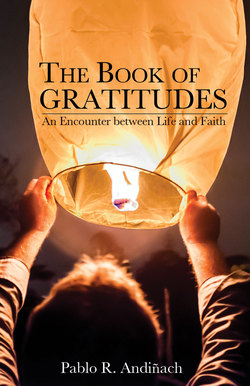Читать книгу The Book of Gratitudes - Pablo R. Andiñach - Страница 23
На сайте Литреса книга снята с продажи.
Casiodoro de Reina, Bible Translator
ОглавлениеCasiodoro de Reina was a monk from Seville who, like so many others of his generation, felt the contradiction between the faith that sustained his life and the teachings of the Church. He became convinced that what the Church needed was to know the Bible better and that the more it was read and studied, the better off the people and the world would be.
That was when he had a very daring dream: to translate and publish the entire Bible into the Spanish language. Until then no one had done so and there were only fragmentary versions, a few individual books and a translation of the Old Testament by the Jews of Spain. In addition, none of these writings were accessible to the people.
Casiodoro had powerful tools, since his erudition included knowledge of the Biblical languages (Hebrew, Aramaic and Greek) and Latin, a language that was very useful at that time. Even more essential and to the point, he had the firm conviction that this undertaking was necessary in order for the Gospel to spread and escape from the prison in which it was chained.
He was a monk who converted to Protestantism, who was condemned as a heretic and fled before the Inquisition would burn him at the stake. Together with him, the community of monks from the convent of San Isidro del Campo left the city at night and headed for Geneva. On April 26, 1562 a figure representing him went up in flames in Seville (it was called “burning in effigy”); but others were not as lucky and were murdered in person. Casiodoro was able to reach Frankfurt, but his life was still in danger. King Philip II put a price on his head and infiltrated the circles he frequented with spies, once again forcing him to leave. He was in London, Strasbourg, Ambers and other cities. On his journeys he carried the translation of the Bible, which grew at a fast pace.
While he translated, he also accomplished other tasks. He published Bible commentaries, wrote a catechism and translated several works into Spanish. In 1567 he wrote and published in Heidelberg the first book against the Inquisition and signed it with the pseudonym Reginaldus Gonsalvius Montanus.
But Casiodoro’s goal was to publish the Bible and he worked endlessly toward that end. In 1567 the translation was ready and he hired one of the best publishers of the day, but he died before beginning the work. This delayed publication, forcing him to find another publisher and more money. Finally, on June 24, 1569, from a printing house in Basel, the Book of the Bear came to light, thus called because of the engraving of a bear on the cover. Two thousand six hundred copies were printed. Only a few books from that first edition survived; first the Inquisition—which condemned it to bonfire and destroyed hundreds—and then the natural passing of time decimated the rest of the copies. Today a few remain scattered across Europe and in Buenos Aires.
After publishing his translation of the Bible, he lived in the city of Ambers, in present-day Belgium, until the Spaniards conquered it and he was once again forced to flee. He returned to Frankfurt, where he earned his living selling cloth and tapestries. During his stay in London he had been ordained as pastor in the Anglican Church, and in that city he found a Spanish-speaking congregation who received him as such.
Casiodoro was born in Seville in 1520 and died in Frankfurt in 1594. He left us a translation of the Bible that endures—with adaptations—in our churches to this day.
